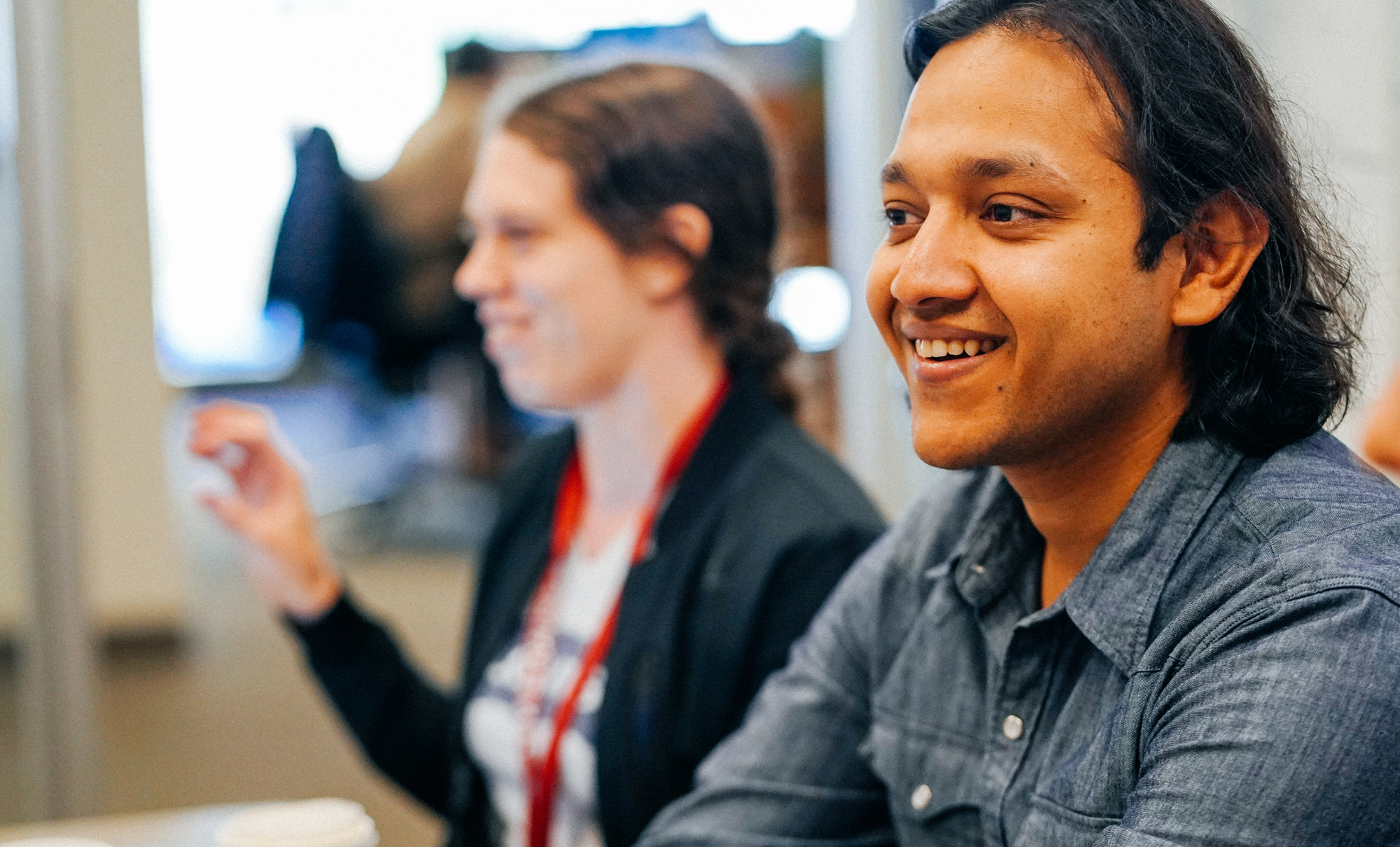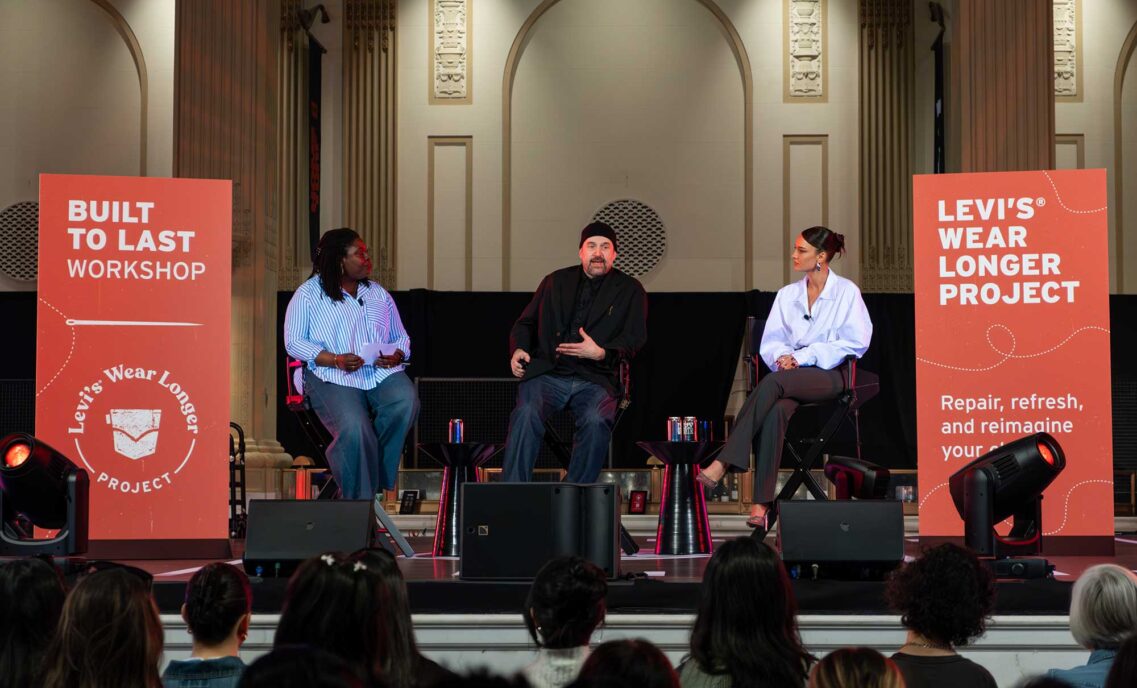The following message is a version of an email originally shared with employees from CEO Chip Bergh.
The series of racial attacks over the past few months has emphatically underscored the problem the United States has with systemic racism. It has forced us to face the brutal truth that as much as we want to believe we’ve made headway in creating a more just and equal society, the data, facts and stories confirm a very different picture: We have made little or no progress in stemming deep-rooted, systemic racism. It makes me sad and angry that this is where we are as a country, but it also feels like this time is different. That gives me hope that meaningful progress can really be made.
We also have to face another brutal truth. If we aren’t actively doing something about racism, then we are an accomplice to the continuation of racism. Doing nothing is not an option. This is not somebody else’s problem. This problem belongs to all of us. Saying that we stand for equality and that we reject all forms of racism is a start, for sure. But unless we put our words into action and commit to measurable progress, history has proved that we will not get very far.
The best place for us to start is with what’s within our own control: our own “house.” And the data, facts and stories for us internally also are very clear: We are not where we need to be. We must step up and live our values of empathy, integrity, courage and originality and fight for racial equality, inclusion and belonging, starting inside Levi Strauss & Co.
I really want to thank our Black employee resource group, Project Onyx, for sharing their stories, educating us and influencing our Global Leadership Team (GLT) on actions we can take immediately. Hearing firsthand narratives of what some of our Black colleagues live with every day at work is gut-wrenching. I think when we hear these stories, we all agree that is not who we are, or aspire to be, as a company. We will only be at our best if everyone can bring their true, authentic self to work every day and be at their best. When there is bias, whether systemic or unconscious, that is holding people back or forcing them to fit into a mold, the result is the same — we won’t ever get the best from that person.
To start, we must take a hard look at where we are today. We are committed to creating a workplace where vibrant and respectful discourse thrives. That means cultivating an inclusive environment where everyone feels safe, valued and has a sense of belonging — and knows unequivocally that their contributions are welcome and wanted.
Since 2018, our Diversity, Inclusion and Belonging strategy has focused on creating an inclusive culture, furthering women in leadership, recruiting diverse candidates and ensuring pay equity. To better understand where we stood on our pay practices at that time, we had an outside firm analyze our compensation data for the U.S. and six European markets, and they found no significant gap. In regard to our other strategic goals, some of our key achievements have included building out a Diversity, Inclusion and Belonging team, standing up ERGs and implementing programs to empower women and Black, Latinx, Asian and other minority employees, as well as foster inclusion and allyship across LS&Co. (Learn more about our actions to date.)
But the reality is we need to do more. We need to hire, support, promote and elevate diversity at LS&Co. This is a business imperative. We know that businesses are stronger and more successful when they are diverse and represent the communities they serve. More importantly, though, this is a moral imperative. We pride ourselves on being a progressive company that takes bold stances to promote equity, justice and inclusivity all around the world — but the hard truth is that we have not always lived up to these principles internally. We must ensure that we live these same principles every day within our organization to be our very best.
Starting With Transparency
As an initial step, we are publishing our demographic representation data with a commitment to update our numbers on an annual basis. We must start by being transparent on where we stand now and the progress we’re making. (We currently have global data for gender and U.S. data for ethnicity, mainly due to legal restrictions and different cultural norms in other parts of the world, but we are looking at how we can take a broader view of diversity and inclusion globally.) Sharing this data is something the best companies do and is something our ERGs have rightly been advocating for.
At first glance, our total company numbers show a diverse organization. Women make up the vast majority of our workforce, and less than 40% of our employees are white. A lot of that is driven by the strong diversity we see in our distribution centers and retail, which respectively are 59% and 71% Black, Latinx, Asian and other minorities.
But when you dig into the corporate numbers, you see a different story. While we have strong gender diversity overall — 55% of all corporate employees globally are women — as well as in the GLT, we are not quite at parity in other leadership positions.
Our corporate U.S. ethnicity data shows a disconcerting lack of diversity compared with the U.S. population at large, which only becomes more pronounced in leadership levels. In addition, on the GLT, 13 out of our 16 members identify as white. Making sure we have better Black and Latinx representation throughout our corporate and leadership ranks is clearly where we have the most work to do. We are committed to changing this and building an organization that better reflects the ethnic makeup of the communities we work in and serve.
Our Commitments
In order to drive this change, we are updating our Diversity, Inclusion and Belonging strategy. Now that our new Chief Human Resources Officer, Tracy Layney, is on board, we will actively begin a search to fill the vacant head of Diversity, Inclusion and Belonging with an executive-level leader who can champion our efforts to create a more diverse and equitable company and culture.
While we look for this leader and build the strategy, there is other critical work that we will undertake starting today. In some instances, this builds upon the work we’ve already been doing with our employees, through our community support and through our policy and advocacy efforts. Time and again we’ve seen that we are able to make an outsized impact when we focus our efforts on these areas.
As a global business, we realize that these issues are not limited to the U.S. We will work with our leaders around the world to apply these diversity programs and commitments in ways that are locally relevant, working within any legal frameworks that are required.
We commit to advancing equality at LS&Co. through our hiring, retention and promotion practices. Our goal is to reflect the makeup of the communities we work in and serve.
– We will be transparent about our progress, publishing annual updates on our employee demographics and diversity statistics.
– Building on the pay equity studies we did in 2018, we will run and publicly publish wage equity audits every other year, starting with a U.S. study in Q4 2020, with the goal of expanding globally.
– We will reinvigorate our search for a Black leader to join our board of directors, adding to a cohort that includes women and people of color.
– We will achieve meaningful, year-over-year improvements in our diversity metrics. We will do this by updating our recruiting and retention strategies to diversify our talent pool.
- We will strive to have Black, Latinx, Asian or other minority representatives be half of interviewees for open positions.
- We will expand our leadership and development opportunities for women and non-white employees with our RISE Leadership Program in LSA and LSE and our Denim Tribe program in AMA.
- We will continue to partner with historically Black colleges and universities and diverse campus organizations to increase recruiting efforts with underrepresented populations.
By 2021, we will launch a career path program for retail/distribution center employees who aspire to join the corporate team so we can nurture and promote the diverse talent that already exists throughout our company.
We commit to creating a more inclusive culture where everyone feels welcomed, heard and valued.
– We will commemorate Juneteenth as an annual paid holiday globally. Although generally a U.S. holiday — it marks the day in 1865 when Union soldiers landed in Galveston, Texas, with news that the American Civil War had ended and all enslaved people were free — we will work with our teams around the globe to determine how best to implement it locally in a meaningful way.
– We will train all of our employees on anti-racism and racial equity. We’ll launch this training this year and ensure everyone completes it by the end of next year.
– Our ERGs have already changed the conversation at the leadership level, shaped policies and influenced product and marketing in the short time they’ve been up and running. So we will expand our ERGs to more geographies in 2020 and continue to invest in these groups.
– We will complete a thorough and comprehensive review of our workplace policies to ensure ethnic, racial and gender equality in our workplace.
We commit to continuing to use our voice to advocate for change at the policy and community level.
– We will continue to stand up for government programs and policies that advance equality, address systemic discrimination and improve conditions for communities of color and underserved people.
– Over the last five years, our company and the Levi Strauss Foundation together have invested more than $28 million to organizations advancing social justice and equality in the U.S.
– We know change happens at the ballot box. We will continue to support voter registration and education for employees and consumers and are aiming to sign up 1,000 companies to Time To Vote, an initiative we helped establish to ensure employees can take time away from work to vote. This year, the Levi Strauss Foundation is making $2.8 million in grants to support get-out-the-vote efforts and voting rights in the United States. These efforts are even more important now as the pandemic has led to longer voting lines, fewer poll workers and disproportionate barriers to voting for communities of color.
– We will leverage our corporate grantmaking, employee giving, volunteerism and civic engagement programs to activate employees to support racial justice organization and be part of the change.
Change will not occur unless we hold ourselves accountable. I welcome your ideas and feedback, and I hope you speak up if you don’t think we’re keeping our promises. It’s going to take all of us to make a difference. We all must step up in this fight for change.
Editor’s note: This article has been updated since it was originally published to reflect a more accurate assessment of the dollar amount the company and Levi Strauss Foundation have invested in organizations advancing social justice and equality.







